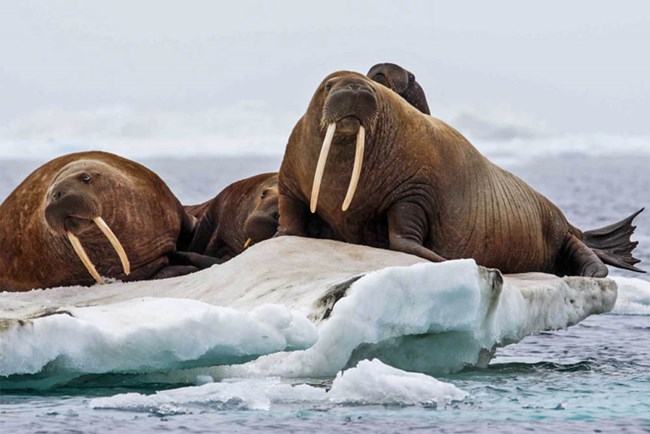
U.S. Marine Mammal Commission
Contact: Dr. Liza Mack
Duration: 3 Years (2018-2020)
Maps and other images can convey complexity and interrelationships in ways that simple text or charts cannot. This project will map subsistence use areas on the Russian side of the Bering Sea and synthesize it with existing information across Aleutian Alaskan and Russian coastal communities. Data will document the extent, timing, and importance of cultural practices, such as individual use areas for fish, marine mammals, and seabirds, as well as habitats that are important for breeding or foraging by subsistence species, and sacred grounds. Goals are to help preserve culture, to promote local engagement in resource management, and to improve conservation, sustainability, and knowledge of the Bering Sea’s natural and cultural resources.
Russian Component: Data collection and mapping will occur in Kanchalan, Nikolskoye, or Tymlat, Russia and will complement data currently being gathered in the U.S. Aleutians and Bering Sea areas. A workshop will include Russian indigenous knowledge holders who will offer their insights on synthesizing subsistence use information. All products will be translated into Russian. This project will facilitate increased communication with the Aleut International Association’s Russian board members and, in turn, the community of Nikolskoye. The project will also build and reaffirm the connections with the Aleut and Russian people who occupy the Western coast of the Bering Sea.
Last updated: October 19, 2020
